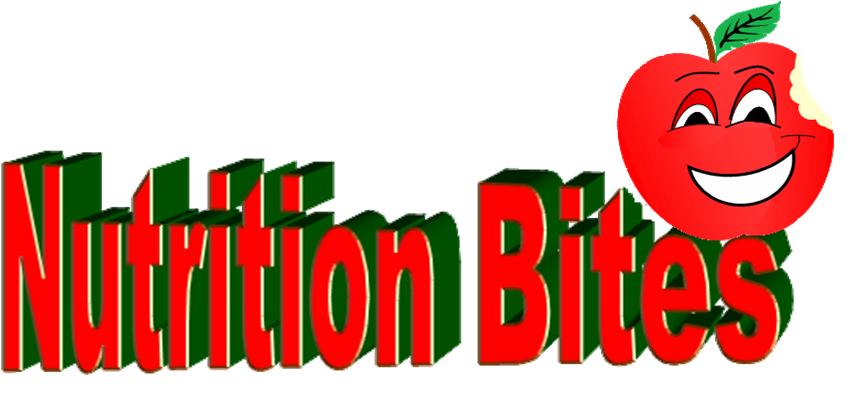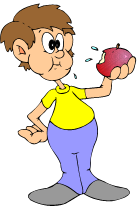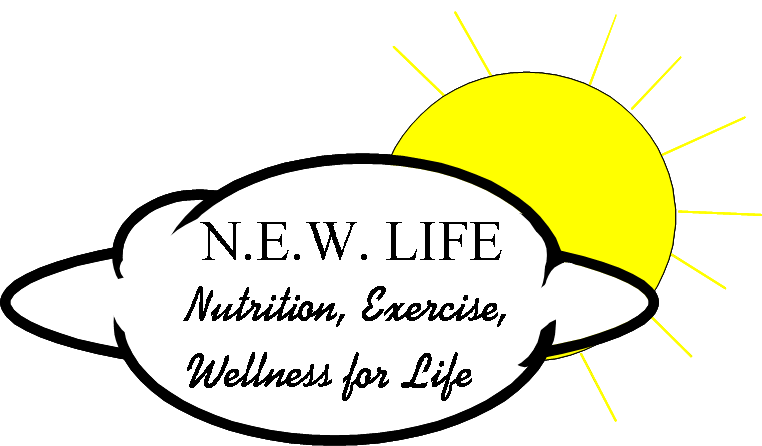[Home]
[About N.E.W. LIFE]
[What's an R.D.?]
[Nutrition Bites]
[The Seed (Blog)]
[Class Schedules]
[Online Classes]
[Individual Counseling]
[Food Diary Evaluations]
[Nutrition Seminars]
[Dietitian's Page]
[Resources]
[Class Resources (Login/Logout)]
[About N.E.W. LIFE]
[What's an R.D.?]
[Nutrition Bites]
[The Seed (Blog)]
[Class Schedules]
[Online Classes]
[Individual Counseling]
[Food Diary Evaluations]
[Nutrition Seminars]
[Dietitian's Page]
[Resources]
[Class Resources (Login/Logout)]
The type of protein which high-protein/low-carb diets promote is
animal protein with its proven harms:
animal protein with its proven harms:
 |
Animal protein is usually linked with saturated fat and cholesterol, which increases LDL-cholesterol. |
 |
A high-protein diet, even for short lengths of time, can speed progression of diabetic renal disease. People with liver or kidney disease are at increased risk on high-protein diets. |
 |
Homocysteine level in blood (a by-product of animal protein breakdown) increases risk for cardiovascular disease. Interestingly, high homocysteine levels in the blood are also correlated with low levels of folic acid, and vitamins B6 and B12. Many plant foods, restricted on a low-carb diet, are good sources of folic acid and vitamin B6. |
 |
Excess animal protein intake crowds out a sufficient intake of protective nutrients in fruits, vegetables, whole grains, beans, nuts and seeds which protect against cardiovascular disease and hypertension, cancer, diabetes, and a host of other lifestyle diseases. |
 |
Strong evidence indicates that "meat factors" in red meat/animal protein promote cancer. Furthermore, restricting fruit, vegees, beans, and whole grains may increase cancer risk. |
 |
A high animal protein intake delivers a marked acid load to the kidney increasing the risk for kidney stones and, increases urinary calcium losses contributing to osteoporosis. |
 |
High-protein foods such as meat, poultry, seafood, eggs, seeds and nuts are high in purines. An excess of purines may cause gout in susceptible individuals. |
 |
A high animal protein intake usually means a lower carbohydrate (high-energy nutrient) intake. When carbohydrates are severely restricted with high-protein diets fatigue often occurs. Lack of activity is one of the strongest predisposing risk factors for cardiovascular disease and diabetes, and activity also seems to be protective against cancer. While the most beneficial thing you can do for your health and your weight is to stay active, it is difficult to stay active when battling fatigue. |
The claim that "carbohydrates" are to blame for insulin resistance, hyperinsulinemia, and a host of associated maladies is not supported by the research.
The studies have shown that these authors are on the right track--that the excess intake of refined carbohydrates are to blame for erratic insulin/blood sugar responses. This is nothing new!!! To blame pasta, and to put many nutrient-dense fruits, vegetables, and complex carbohydrate starches on an "out" list is not only highly misleading, but downright harmful, exacerbating an already too-low-nutrient-dense Standard American Diet (S.A.D.)
It's simple: think more plant, less animal,
The studies have shown that these authors are on the right track--that the excess intake of refined carbohydrates are to blame for erratic insulin/blood sugar responses. This is nothing new!!! To blame pasta, and to put many nutrient-dense fruits, vegetables, and complex carbohydrate starches on an "out" list is not only highly misleading, but downright harmful, exacerbating an already too-low-nutrient-dense Standard American Diet (S.A.D.)
It's simple: think more plant, less animal,
but that flies in the face of the popular high-protein diet book authors' recommendations which are high-animal protein and carbo-phobic. Could it be these popular authors are "tickling the ears" of this generation of meat-indulging Americans, and that many Americans are so ready to believe the unsubstantiated claims because of the "success" they experience with ketotic weight-loss?



